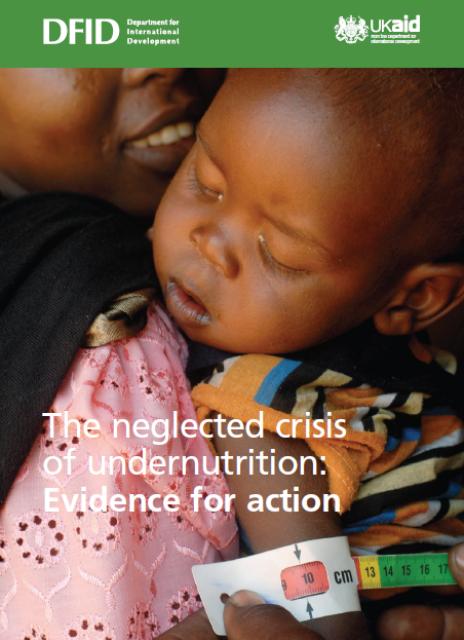
Published in: 2009
Publisher:
Department of International Development, UK
Author:
DFID
Uploaded by:
SuSanA secretariat
Partner profile:
common upload
4839 Views
36 Downloads
Content - Summary
1. This paper focuses on undernutrition: the most pervasive form of malnutrition
to date in the poorest countries, where DFID concentrates the bulk of its assistance.
This Evidence Paper informs the development of a separate DFID Strategy Paper for
tackling undernutrition in the developing world.
2. This paper does not set out to provide a comprehensive review of all the relevant
and most up to date evidence on undernutrition, nor is it based purely on peer
reviewed journals. It cannot do justice to the richness of the debate on some of the
facts and figures referred to. It reflects the type of evidence that informs DFID’s and
others’ policy formulation and the major findings. It is important to acknowledge
that the quality and sources of evidence vary. There is a reasonable body of
evidence on many of the determinants and impacts of undernutrition, and the costeffectiveness
of direct interventions. There is less on how such interventions can be
effectively scaled up in different settings. There is more on the ‘direct’ interventions
than on the impact, relative importance and cost effectiveness of indirect
interventions that tackle the drivers of undernutrition. DFID’s research agenda will
contribute towards filling some of the gaps in the evidence.
3. Nutrition fundamentally determines life chances and people’s ability to convert
opportunities into outcomes. The consequences are long-term, inter-generational
and irreversible, with the effects of poor foetal growth and/or stunting in the
first two years of life being sustained into adulthood5. Nutrition is, essentially, a
foundation for the attainment of the MDGs. Improved nutrition will significantly
reduce child and maternal mortality, improve educational outcomes, and increase
productivity and growth. Prevention of malnutrition is therefore a long-term
investment, which greatly benefits both present and successive generations and
preserves human capital.
Bibliographic information
DFID (2009). The neglected crisis of undernutrition: evidence for action. Department of International Development, UK
Filter tags
English WASH and nutrition (WG12)














